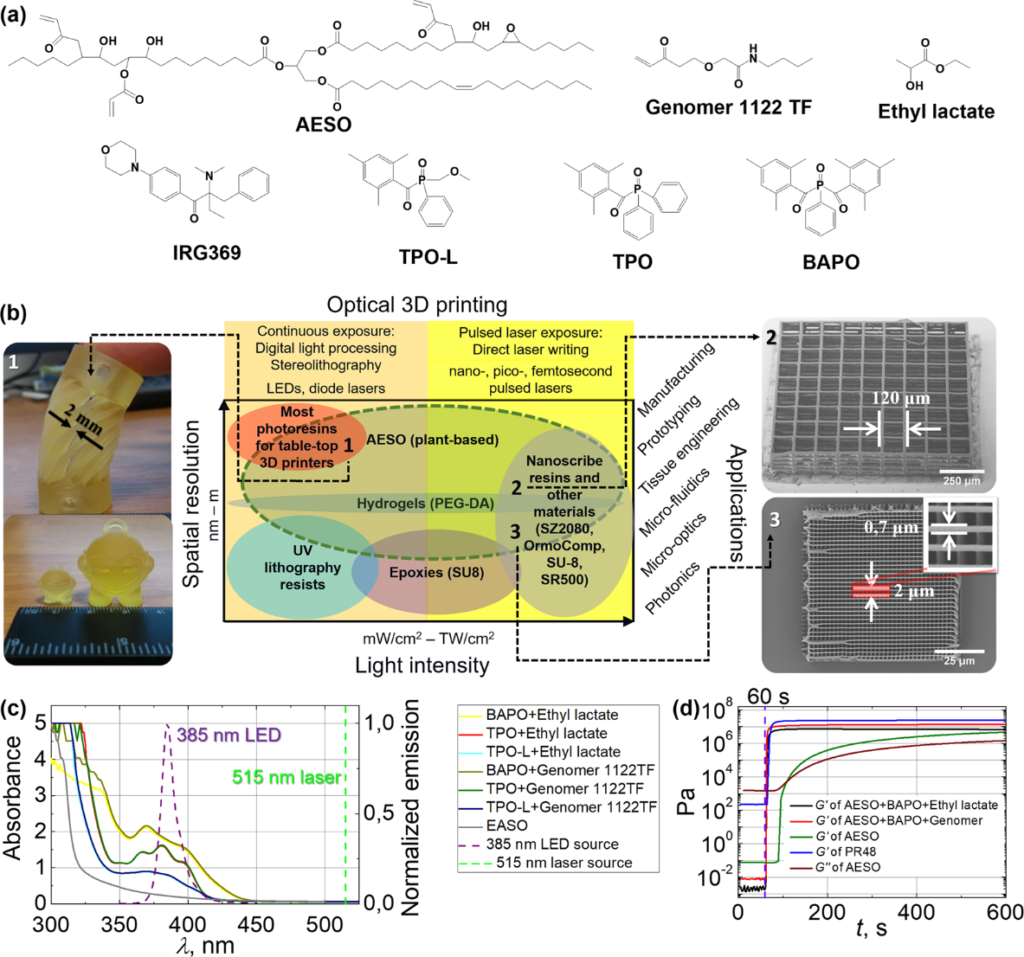
Writer: Mangirdas Malinauskas, Vilnius University
We have investigated acrylated epoxidized soy bean oil (AESO) based photocurable resins, which were proven to be suitable for both commercially available personal table-top 3D printers and to state-of-the-art ultrafast laser nanolithography dedicated setups. Thus, it covers the range of 5 orders of magnitude in spatial fabrication resolution/accuracy, which by itself is a unique property for a single photo-resin (regardless its origin).
As the usage of renewable materials is growing in parallel to exploitation of 3D printing technology, we are sure that the findings will be influential in bridging these to active fields together. The research was performed in a collaboration with “3D Creative Ltd.” which found the bio-based resin applicable for rapid prototyping tasks and potentially applied for commercial practice (namely 3D printing services).

The work is accurate and timely as the market growth is followed by the amount of research papers on renewable resources and 3D printing topics are as high in numbers as never before and continues to augment rapidly.
In an original research paper EcoLabNet partners VU, KTU and 3D Creative reports on a universal bio-based resin suitable for optical 3D printing: E. Skliutas, M. Lebedevaite, S. Kasetaite, S. Rekštytė, S. Lileikis, J. Ostrauskaitė, and M. Malinauskas. A Bio-Based Resin for a Multi-Scale Optical 3D Printing. Sci Rep 10, 9758 (2020). https://doi.org/10.1038/s41598-020-66618-1.
